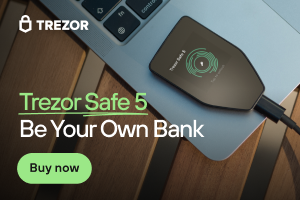
What are Bittorrent Gas Fees?
Home » Bittorrent » What are Bittorrent Gas Fees?
Yes, the BitTorrent Chain (BTTC) utilizes gas fees for transactions and operations on its network. BTTC is designed to be a scalable interoperability layer connecting various blockchains, including Tron, Ethereum, and the BNB Smart Chain. It processes approximately 7,000 transactions per second with a block time of three seconds, and average gas fees are below $0.01.
The native token of BTTC, BitTorrent Token (BTT), plays a crucial role in the network’s operations and serves multiple purposes within its ecosystem:
- Paying Gas Fees: BTT is used to cover gas fees for transactions and activities on the BTTC network. (Source: Coinbase)
- Staking and Validation: Validators stake BTT tokens to participate in the network’s consensus mechanism, ensuring its security and efficiency.
- Incentivizing Storage: Storage miners are rewarded with BTT for storing data on the BitTorrent File System (BTFS).
What Are Gas Fees in Blockchain?
To understand Bittorrent gas fees, it’s essential first to grasp gas fees in general. These are not unique to Bittorrent; gas fees are standard in most blockchain networks.
Definition of Gas Fees
Think of gas fees as the cost of using blockchain services. Every time you make a transaction or execute a smart contract, you’re using computational power. Gas fees cover this cost. On most blockchains, including Ethereum, these fees are calculated using two metrics: gas limit (the effort required for the operation) and gas price (cost per unit of gas).
To see how gas fees operate on a network like Ethereum, Investopedia’s guide to Ethereum gas fees provides solid insights.
Gas Fees in Various Blockchains
Different blockchain networks have unique rules for gas fees. Ethereum, for example, is well-known for its fluctuating fees, often linked to network demand. Busier networks tend to have higher gas prices.
In contrast, newer blockchains like the Bittorrent Chain (BTTC) aim to address these issues by offering lower fees while maintaining performance. According to BTTCScan, average BTTC gas fees can be significantly cheaper than Ethereum, making it more appealing for cost-conscious users.
The Role of Bittorrent in Cryptocurrency Transactions
When most people think of Bittorrent, they picture file-sharing. But the Bittorrent ecosystem has significantly evolved, integrating blockchain to enhance functionality.
Bittorrent Overview
Originally a peer-to-peer protocol for file sharing, Bittorrent now incorporates blockchain to boost decentralization. Its ecosystem includes the Bittorrent Chain (BTTC), which is designed to link multiple blockchains. More on this can be found on the official Bittorrent Chain page.
Bittorrent and Cryptocurrency
Bittorrent’s integration with cryptocurrency ensures seamless data and value transfer. The BTTC network utilizes BTT tokens as a medium of exchange, playing a pivotal role in its gas fee structure. The goal? A scalable, efficient blockchain network for both users and developers.
Understanding Bittorrent Gas Fees
Bittorrent gas fees, much like those on other blockchains, are necessary for facilitating transactions. However, they stand out because of the network’s design and cost-effectiveness.
Calculation of Bittorrent Gas Fees
Gas fees on BTTC are charged in BTT tokens. The components of the fee include:
- Network demand: More traffic means higher fees.
- Computational requirements: Complex operations demand more gas.
- Minimum thresholds: BTTC sets a baseline to prevent network abuse.
The Bittorrent Converter Tool offers a simple way to see how gas fees translate into BTT tokens and vice versa.
Factors Affecting Bittorrent Gas Fees
Several variables influence Bittorrent gas fees:
- Network Activity: When demand spikes, fees can rise.
- Transaction Complexity: Data-heavy operations generally cost more.
- Validator Contribution: Fees are tied to validators who secure the network and execute transactions.
To learn more about Bittorrent’s low average gas fees and its validators, Cointelegraph delves into the network’s structure here.

Implications of Bittorrent Gas Fees for Users
Gas fees affect every Bittorrent user, from casual file-sharers to crypto traders.
Cost Implications for Users
Although Bittorrent boasts low fees, costs can stack up for frequent transactions. On the flipside, these fees deter bad actors from spamming the network, ensuring smoother operations for everyone.
Strategies for saving on fees include executing transactions during low-traffic periods and optimizing transaction sizes.
User Experience and Optimization Strategies
High gas fees can make users hesitant. Bittorrent addresses this by keeping fees predictable and affordable. Some user tips to minimize costs:
- Monitor demand: Use tools like BTTC Gas Price Charts to spot low-demand periods.
- Stay updated: Understand new protocols and fee structures on the BTTC network.
Conclusion
Gas fees are a necessary aspect of blockchain networks, including Bittorrent.
They ensure smooth operations, help secure the network, and keep it functional. For users, understanding these fees can save money and enhance the overall experience.
Whether you’re an investor or a casual user, knowing how Bittorrent gas fees work is an essential part of navigating this ecosystem.


